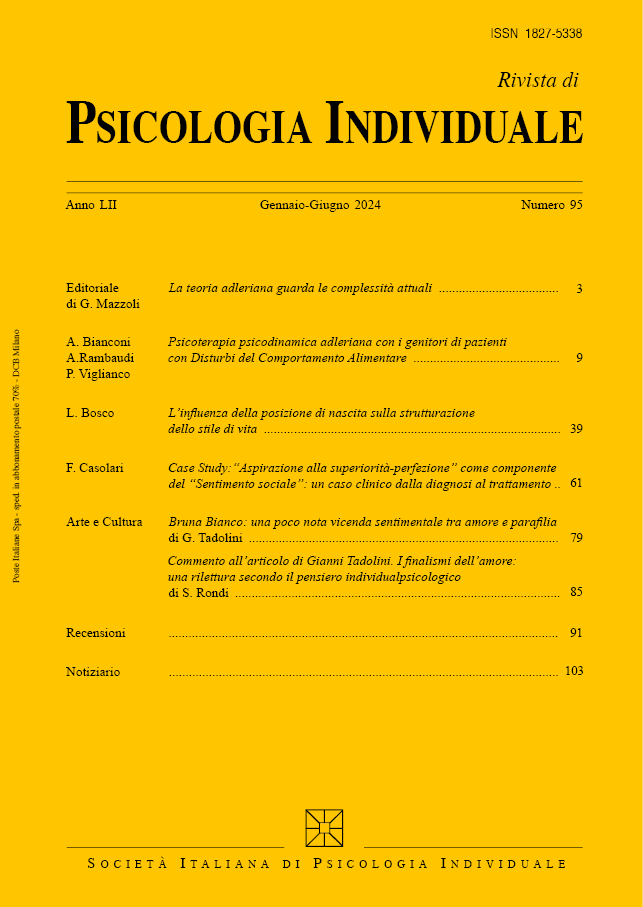Adattamento dello stile di vita in pazienti emiparetici
Parole chiave:
autostima, reazioni depressive, protesta virile, psicopedagogia, psicoterapia, riabilitazione fisica, volontà di potenzaAbstract
Vengono ricordati i fattori fondamentali che concorrono alla formazione delle stile di vita (inferiorità, presa d posizione di fronte alle richieste della vita, superamento dell’inferiorità e protesta virile) e, in base all’esperienza maturata in una clinica specializzata in fisioterapia riabilitativa, si fa osservare che l’emiparesi ha sempre modificato lo stile di vita dei pazienti, che in genere avevano dai 45 ai 60 anni, non solo richiedendo loro un adattamento al nuovo status, ma anche nel far rivendicare diritti precedentemente non soddisfatti. Da ciò è derivata la necessità che i soggetti fossero valutati da un punto di vista psicologico. I pazienti, oltre ad avere delle caratteristiche individuali per le diverse esperienze, per le diverse modalità con cui le hanno vissute ed il diverso carattere che così si è andato formando, ne presentano altre che dipendono dal sesso, dalla condizione sociale, professionale e familiare. Vengono riportati due casi esemplificativi e si sottolinea che, anche se pazienti, in genere, non fanno richiesta di un trattamento analitico, si deve comunque svolgere un’azione psico educativa individualpsicologica per far accettare la nuova situazione creatasi con l’emiplegia






